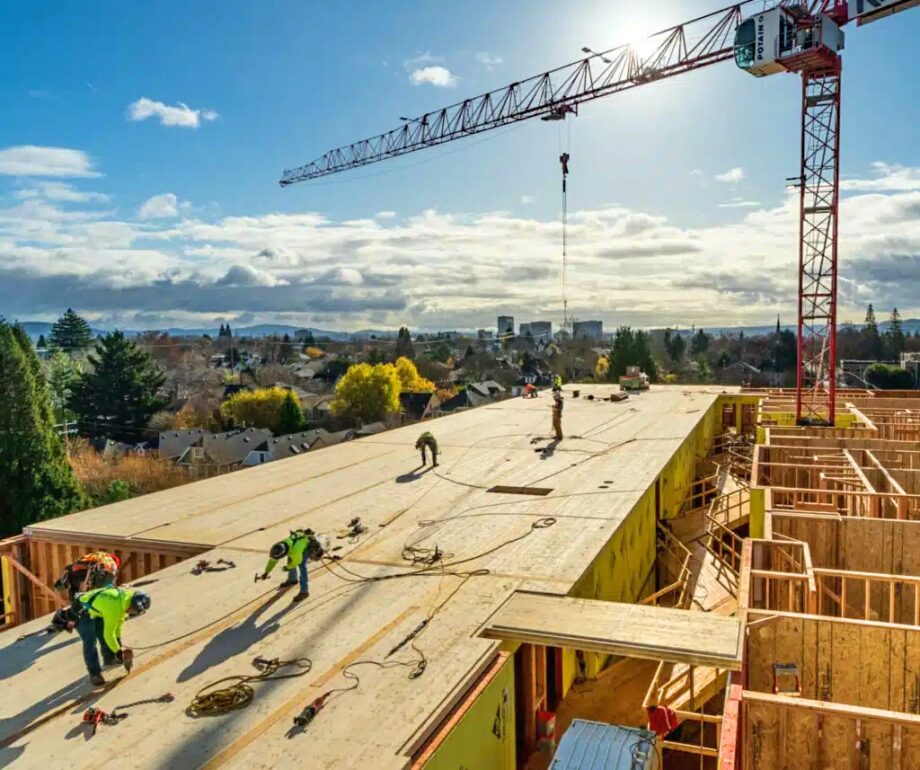- Pacific Northwest Mass Timber Tech Hub snubbed in $500m federal funding blitz by Biden administration
- Hub aimed to develop low-carbon housing solutions using advanced material science
- Ohio, Montana, Nevada, and Florida chosen instead for technology hub funding
- Funding supports quantum computing, biomanufacturing, lithium batteries, and more
- Commerce Department’s Economic Development Administration funds hubs under CHIPS Act
Pushing Pacific Mass Timber Innovation: Biden Administration’s Funding Decision
The recent decision by the Biden administration to allocate over $500 million in federal funding to various technology hubs across the country has sparked controversy, particularly in the Pacific Northwest Mass Timber Tech Hub. This initiative, which focuses on developing low-carbon housing solutions through advanced material science, was notably absent from the list of recipients. Despite being named among the 31 finalists, the hub, managed by Oregon State University, missed out on the opportunity to receive up to $70 million in funding.
The Pacific Northwest Mass Timber Tech Hub, an endeavor of the TallWood Design Institute, aimed to leverage the $41 million commitment made in 2022 to expand the use of mass timber in housing, as part of the Oregon Mass Timber Coalition. The Port of Portland had even explored the possibility of transforming Terminal 2 at the PDX Airport into a manufacturing hub for mass timber construction, underscoring the region’s dedication to innovative sustainable building practices.
Implications of the Funding Snub on Mass Timber Innovation
Professor DeLuca, a key figure in the initiative, emphasized the significance of the Mass Timber Tech Hub in advancing sustainability, innovation, and economic growth. By promoting interdisciplinary research and education, the hub aimed to drive policy change and meet the natural resource demands of a growing population. The decision to redirect the funding to other technology hubs in states like Ohio, Montana, Nevada, and Florida raised concerns about the potential impact on the advancement of mass timber construction in the Pacific Northwest.
Related Video

The Biden administration’s move to prioritize technologies such as quantum computing, biomanufacturing, and lithium batteries, while overlooking the Pacific Mass Timber Hub, has left stakeholders in the timber industry questioning the government’s commitment to sustainable building practices. The decision underscores the broader challenge of balancing technological advancement in various sectors with the urgent need to address climate change and promote environmentally friendly construction methods.
Wood Central’s Role in Promoting Timber Innovation
Wood Central, as Australia’s premier platform dedicated to wood-based media, plays a crucial role in highlighting the importance of timber innovation and sustainable forestry practices. Through its comprehensive coverage of all digital platforms, Wood Central aims to connect, inform, and inspire individuals and organizations involved in forestry, timber, and fiber industries. By showcasing the latest trends, technologies, and initiatives in the timber sector, Wood Central serves as a valuable resource for industry professionals and enthusiasts alike.
The platform’s vision of creating an integrated space for media, events, education, and products aligns with the global push towards sustainable development and eco-friendly construction practices. By shedding light on the impact of decisions like the funding allocation by the Biden administration, Wood Central contributes to the ongoing dialogue on the future of timber innovation and its role in combating climate change.
Looking Ahead: Challenges and Opportunities for Mass Timber Construction
As the timber industry continues to evolve and adapt to changing economic and environmental landscapes, initiatives like the Pacific Northwest Mass Timber Tech Hub remain crucial for driving innovation and sustainability in construction practices. While the recent funding setback poses challenges for the region’s mass timber sector, it also underscores the need for continued advocacy and support for renewable building materials.
Moving forward, stakeholders in the timber industry must collaborate, innovate, and advocate for policies that promote the widespread adoption of mass timber construction. By highlighting the environmental benefits, cost-effectiveness, and structural advantages of timber framing, industry professionals can make a compelling case for investing in sustainable building practices.
The decision to exclude the Pacific Mass Timber Hub from the recent funding allocation highlights the complex dynamics at play in the push for sustainable construction practices. While challenges exist, the timber industry’s resilience and commitment to innovation offer hope for a future where mass timber construction plays a central role in addressing climate change and promoting a more sustainable built environment.
Links to additional Resources: